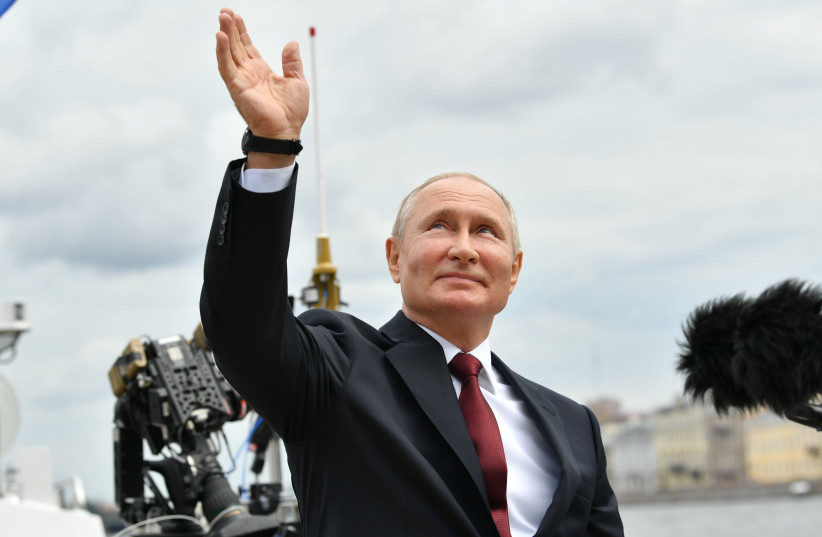January 10 sees the opening of US-Russia security talks on NATO and Ukraine. However, they might evolve as Russia will have its revolver on the negotiating table loaded with its massive military build-up on Ukraine’s borders. Whether an agreement is reached or not, the West would be wise to consider a number of geopolitical factors in its forward planning, however somber.
As a retired US Foreign Service officer, I can envision that Russia might decide to invade the rest of Ukraine with the goal being full control of Kiev, the country’s capital. From president Vladimir Putin’s perspective, however warped, Ukraine is Halford Mackinder’s Heartland for Russian assertion of dominance in Eurasia.
Even a Ukraine commitment not to seek NATO membership may not dissuade Russia’s leader. How foolish it may have appeared in Moscow’s eyes for the Group of Seven to have written in its draft statement of December 12 that “any sovereign state has the right to determine its own future.” In Putin’s eyes, Ukraine is illegitimate as a free state.
Putin may be determined to seize this occasion to show up the impotency of the West, and especially of the US, on the world geopolitical stage. Moscow has been closely watching the timid US response to Russian-inspired cyberattacks, as well as the debacle of the US and the West in Afghanistan. This would be especially compounded in Russian eyes by US president Joe Biden’s self-deprecating deference, even subservience, to Iran’s machinations, as the latter advances steadily toward nuclear military breakout.
At the same time, Moscow is strengthening its relations with China to thwart any future increase in western sanctions. Even India appears to have joined the fold with a massive new oil and arms deal with Russia. It may be that New Delhi has seen the Bible-inspired handwriting on the wall – that Washington is being weighed in the balance and Putin may be determined to prove it, wanting into the larger geopolitical game.

I can well understand Putin’s potential plan: invade, occupy and set up a puppet regime in Kiev. Putin’s support for dictatorship in Belarus, also a former Soviet federal republic, even without invasion has consolidated a compliant regime there – the model thus exists for use in Ukraine after an invasion.
Moscow would then be in a position to offer to withdraw its troops in exchange for removal of all sanctions, both old and new, that first started with its annexation of Crimea. To this might be added a Putin demand for tacit Western acceptance of incorporation of the heavily ethnic Russian Donbass region, in south-eastern Ukraine, into the Russian Federation.
Under these circumstances, Moscow may assume that the West will have to acquiesce. If its message is still not clear, Russia might begin to mass troops on its borders with the Baltic States, also once part of the Soviet Union, where one million ethnic Russians abide. The expected trade-off for withdrawal of Russian forces, west and north, may then be clearer to Western Europe – get your foot off the Russian Bear’s paw.
Of closer concern to Israel and its Middle East allies may then be the need to stop Iran, whether nuclear or not, before it can find safe haven in such a Russo-Chinese new world order.
As for the 50,000 Jews and their families remaining in a humbled Ukraine, the future may not look very promising even under Russia’s protective mantle. A blame-game may start to swirl around Ukraine’s deposed president, whom Moscow repeatedly insinuates is a Jew.
The writer is an American-born retired US Foreign Service officer living in Jerusalem, who served 13 years in Moslem countries, including Egypt and Tunisia. He is also the founding president of the non-sectarian Jewish Covenant Alliance, R.A., advancing Jewish service to the nations in the struggle against regime-evil worldwide, with their website www.covenantalliance.org in 14 languages.
